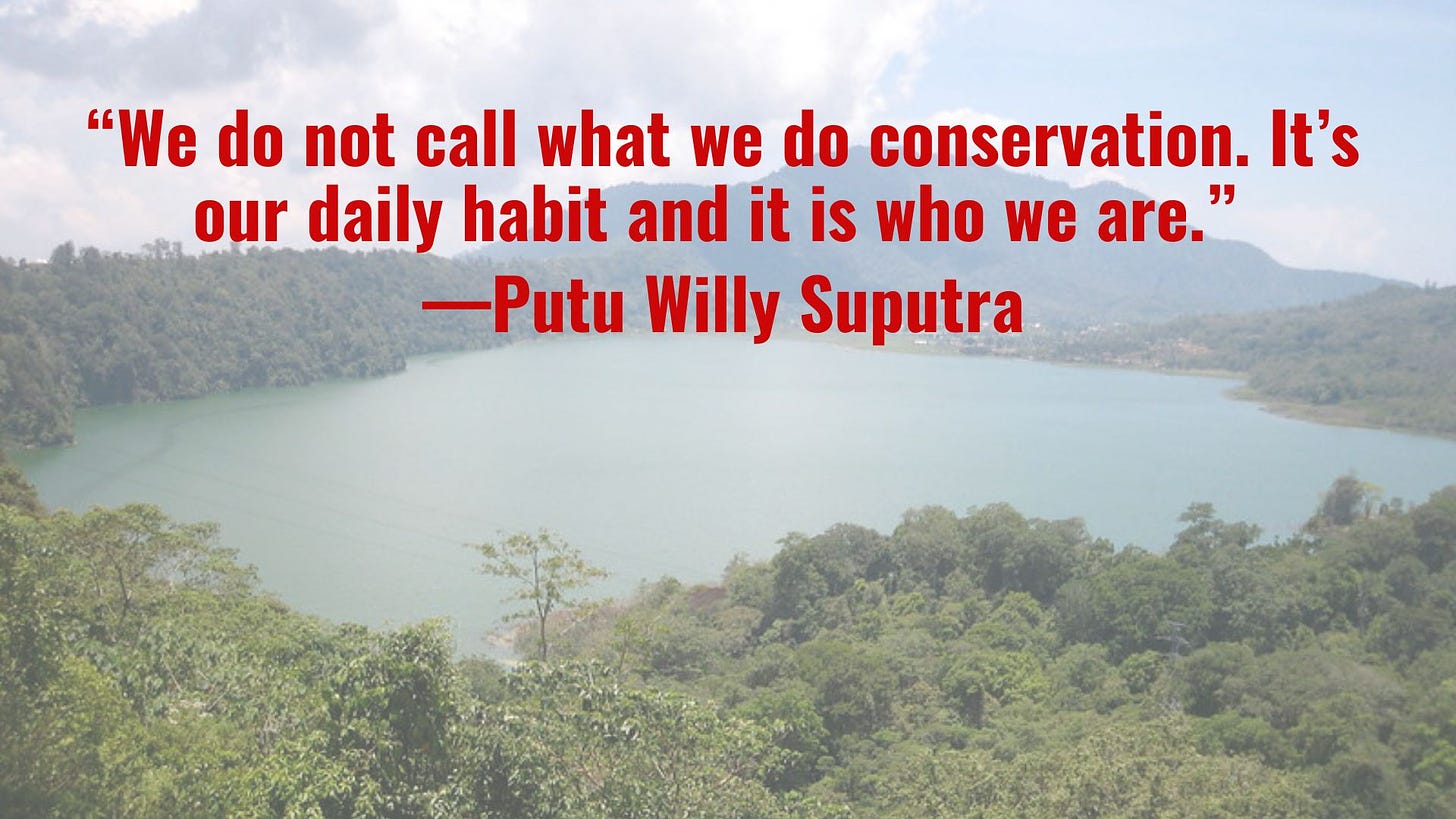
This week, newly nominated U.S. vice-presidential candidate Tim Walz became an avatar of the electorate’s fondest memories and greatest hopes. Whether he reminds you of your favorite high-school teacher, the dad who patiently taught you how to use a stick shift, or those guys in faded Hüsker Dü T-shirts who still attend every Twin Cities indie rock show, the affable Walz seems happy to receive the love and shine it right back.
So I’m a little hesitant to identify Walz as a member of my favorite political species, the little-known but widespread rural progressive. But there’s no doubt that Walz, the current governor of Minnesota, is a rural guy, and there’s no doubt that he’s embraced many progressive positions. If he brings his roots and his record to the White House, he could be very, very good for conservation.
Though Walz’s selection as the Democratic vice-presidential candidate has been cheered by many climate and environmental advocates, Walz isn’t universally beloved by the constituency. Environmental groups in Minnesota have criticized his administration for lax regulation of industrial polluters, and Indigenous water protectors have decried his refusal to use executive powers to stop the construction of a pipeline segment carrying oil from Alberta’s tar sands through Minnesota.
What Walz brings to conservation is deep rural literacy. He grew up in tiny towns in Nebraska, and he represented Minnesota’s suburbanizing but still predominantly rural First District in Congress for more than a decade. As governor, he’s worked with lieutenant governor Peggy Flanagan, an Ojibwe activist and one of his first political mentors, to strengthen the state’s relationships with the tribal nations of rural Minnesota and with Indigenous communities urban and rural. He gets that rural places are far more than their stereotypes: more diverse, more complicated, and more open to change than many assume. He knows there’s plenty of support for conservation in rural places, even if it’s rarely expressed in the language used by urban environmentalists.
Walz also knows that rural literacy is about more than using the right words, as important as the right words can be. During a “Rural Americans for Harris” Zoom call earlier this week, the Nebraska Democratic Party chair and conservation activist Jane Kleeb called on the party to break a “cycle of mutual neglect.” When Democrats at the national level don’t expect support from rural places, she said, they don’t invest in them, further ensuring that their expectations are fulfilled. (Republicans haven’t done much for rural communities, either; the Infrastructure Investment and Jobs Act, passed in late 2021, attempts to address this bipartisan oversight).
Walz has learned from experience that many rural residents are more than willing to support progressive candidates, especially when those candidates offer effective fixes for rural problems. He was elected and re-elected to a Congressional seat in a Republican-held district in part because he understands — and worked to solve — the problems faced by rural communities of all kinds, including inadequate health care, underfunded schools, and a persistent technology gap.
I’ve lived in rural places for all but a few years of my life. Because I work for employers who live elsewhere, my family and I are insulated from some of these problems. But we’re not insulated from all of them, and we see their bruising effects on lots and lots of people we care about.
In the U.S. and worldwide, Indigenous and other rural communities live within some of the planet’s healthiest remaining ecosystems. In my experience, rural people care deeply for these places and are more than willing to protect and restore them, but they can only do so when their basic needs are met. A rural progressive in the White House could help protect rural ecosystems while also serving rural needs — turning a cycle of mutual neglect into a cycle of multispecies benefit.
Words We Need
One thing I’ve learned from years of writing about conservation is that the English language doesn’t have enough words for it, and those that we do have can be counterproductive. Even the most basic, like “nature,” reinforce the culturally-imposed distinction between humans and our ecosystems. I’ll use this section to recommend some words for wider use (though I’m making a bit of a departure this week). Suggestions welcome!
Putu Willy Supatra, a young trekking guide, is a member of the Indigenous Adat Tamblingan community of northern Bali. As Rights and Resources reports, the Adat Tamblingan, whose traditional conservation practices are threatened by agribusiness, illegal logging, and tourism, are fighting for legal recognition of about 17,000 acres of their customary territory. Where conservation is an assumed part of life — when a community has what Aldo Leopold would call a land ethic — it may not require any words at all.
Remembering Peter Dykstra
I was saddened to learn of the death of accomplished environmental journalist Peter Dykstra, known for his tireless reporting and great good humor. In 2019, as longtime climate denier Sen. James Inhofe approached his 85th birthday, Dykstra sent a letter to Inhofe’s staff requesting an interview with him “on or about November 17, 2034” — the Senator’s 100th birthday. As Dykstra wrote in his request, he hoped to “evaluate Inhofe's relentless challenges to the overwhelming view of the climate science community that we're building a whopping problem on all fronts, in every corner of the earth.”
Inhofe, who passed away last month, managed to evade the reckoning.






Great topic, Michelle. Let's hope Walz proves to be part of a new (broader) path forward for progressives. If the DNC doesn't have a long-term plan for rural America, they certainly need one. One book to put on your radar is Dirt Road Revival, by Chloe Maxmin and Canyon Woodward. Chloe, from down the road here in midcoast Maine, is a remarkable young politician and activist, having co-founded Divest Harvard and then winning two races for the Maine state legislature in a red rural district. The book - which, to be clear, I haven't read yet - lays out the problems with ignoring rural voters and some solutions for how to win them back. I'm not sure to what extent they address conservation, but the politics of the book may interest you. [book here: https://www.dirtroadrevival.com/] [doc trailer here: https://www.youtube.com/watch?v=SoefL39iAKU&t=166s]
Thank you for this, Michelle. Rural progressive voices are too consistently ignored, and it's great to see them recognized!